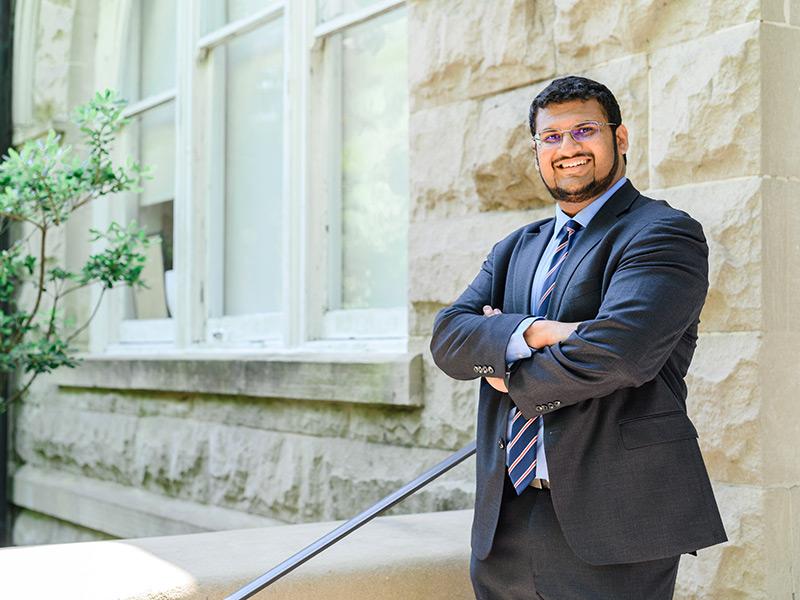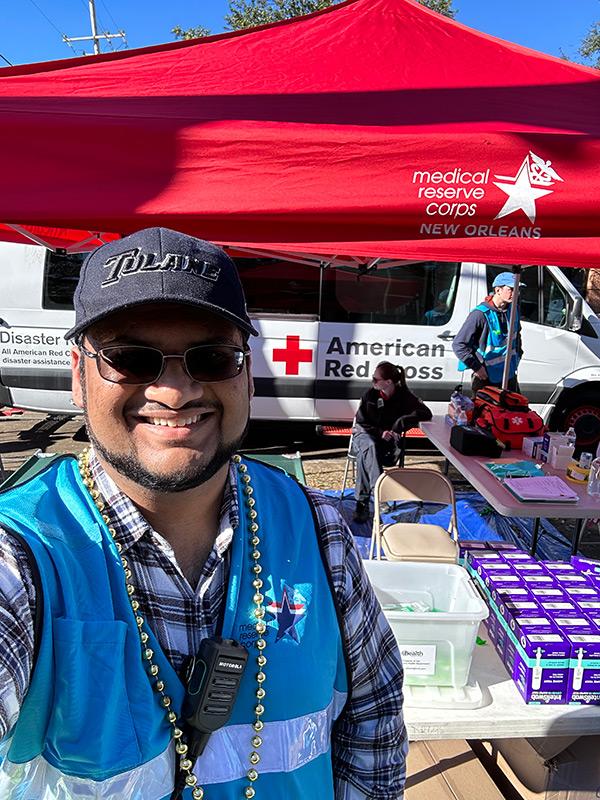Service an integral part of neuroscience, cell and molecular biology grad’s Tulane experience
Eshan Damle had never stepped foot in Louisiana before he arrived at Tulane from just outside of Dallas, Texas, for his first year. Like many students, he became a Tulanian amid the pandemic, and this experience ended up sparking research interests and volunteer opportunities that have defined his time at Tulane.
Damle, who will be graduating with double majors in neuroscience and cell and molecular biology as well as minors in psychology and philosophy, has had his eyes set on studying medicine for as long as he can remember. Once he graduates, he will continue his studies at the Stanford University School of Medicine with the goal of pursuing research and becoming a physician.
His interdisciplinary undergraduate curriculum has given him a holistic view of the study of medicine, helping him keep a focus on the humanity behind the science. “When I do research, or when I have any kind of clinical exposure, it allows me to contextualize my interactions, keeping in mind that though there is some biological process happening, there’s always a person behind it,” he said.
Damle participated in the Tulane Research & Innovation Award (TRIA) program his first year, where students in the School of Science and Engineering (SSE) are paired with a faculty member to assist in research. He said this program allowed him to “hit the ground running” when it came to conducting research as a student.
He began researching acute respiratory distress syndrome with Donald Gaver, the Alden J. ‘Doc’ Laborde Professor of Biomedical Engineering in SSE. He was looking at ventilator-induced lung injury, a timely research topic in 2020 and 2021 at the height of the COVID-19 pandemic. “That experience taught me that you have to do the work, but you also have to deal with the failures that come along with that,” Damle said. He faced natural setbacks during his research, like experiments not working as intended, as well as unexpected delays such as COVID-19 resurgences and Hurricane Ida. “You also have to be able to kind of regroup and deal with that.”
Damle then started research in neuroscience, specifically neuroimmunology, with Dr. Gregory Bix, director of the Clinical Neuroscience Research Center in the School of Medicine. He began studying the SARS-CoV-2 virus and its impact on the immune cells of the brain, which ended up being the subject of his honors thesis.
In his time at Tulane, Damle has been a Resident Advisor, a supplemental instructor with the Academic Learning and Tutoring Center, president of The Research Ambassadors and co-president of the SSE Student Government. He has published in peer-reviewed journals as a first author and presented his work at national medical and professional society conferences. He is graduating with the Newcomb-Tulane College Dean’s Service Award and the Leadership Medallion and as a member of the William Wallace Peery Society and Phi Beta Kappa. He is also one of the Center for Public Service’s Top 40 Senior Leaders in Service for 2024.
His volunteer work administering COVID-19 vaccines with the New Orleans Medical Reserve Corps and working in the NICU at the Children’s Hospital of New Orleans showed him the impact research can have on people. “That, I think, is ultimately the point,” he said. “You don’t just study for the sake of knowing; you study for the sake of applying that knowledge to better the lives of those around you.”



